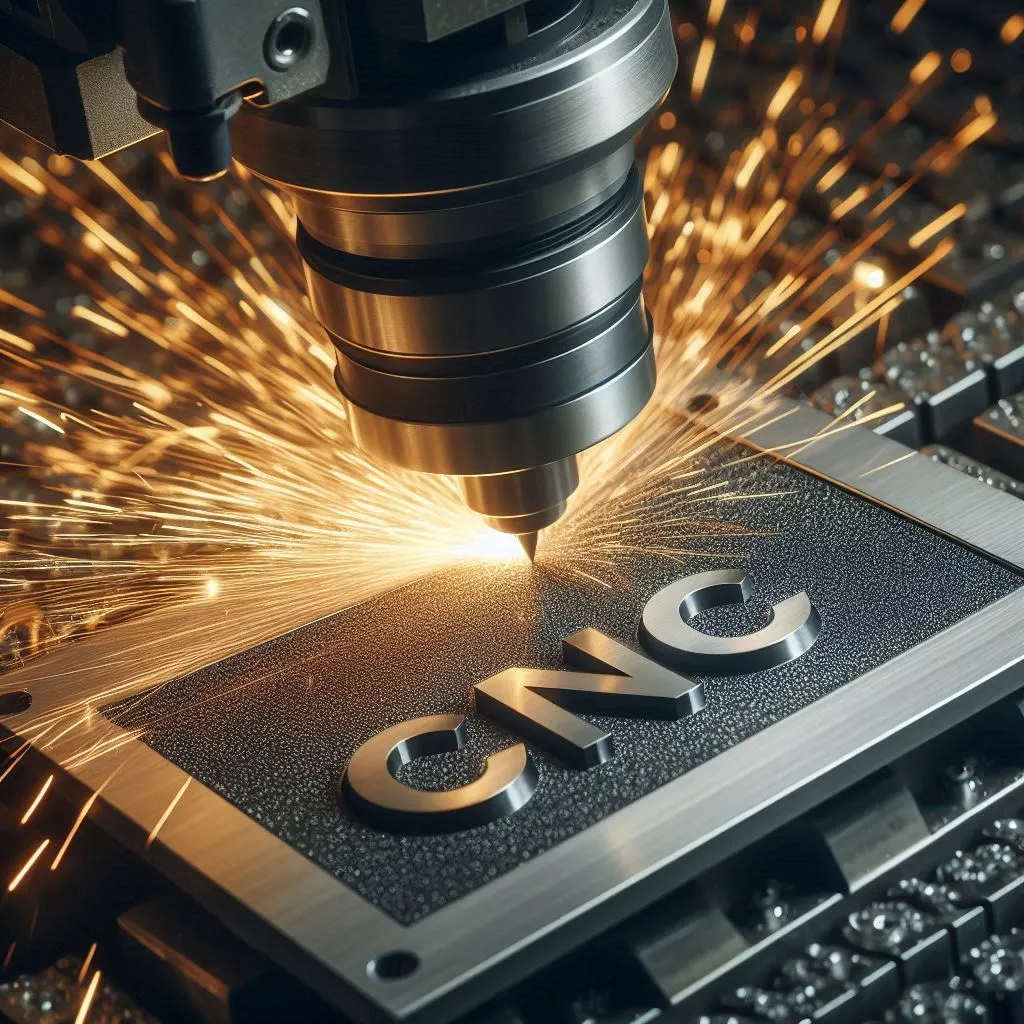
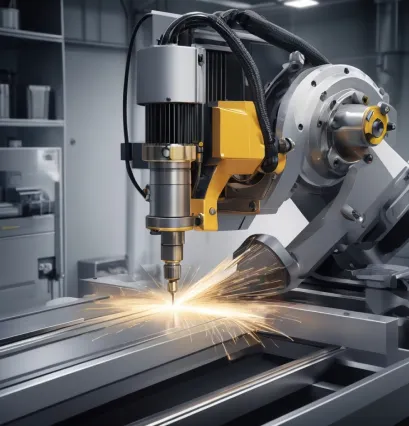
Welcome to CNC Precision Engineering's journey into the fascinating world of Computer Numerical Control! Delve into a realm where innovation meets precision, and discover how CNC technology is revolutionising the manufacturing industry. From small-scale workshops to massive industrial operations, CNC has become the backbone of efficient production, enhancing accuracy and consistency. As we explore the latest innovations in CNC technology, you'll learn how these cutting-edge developments can empower your projects, drive creativity, and boost productivity. So, whether you're an industry veteran or a curious newcomer, prepare to be inspired by the possibilities CNC brings to life!
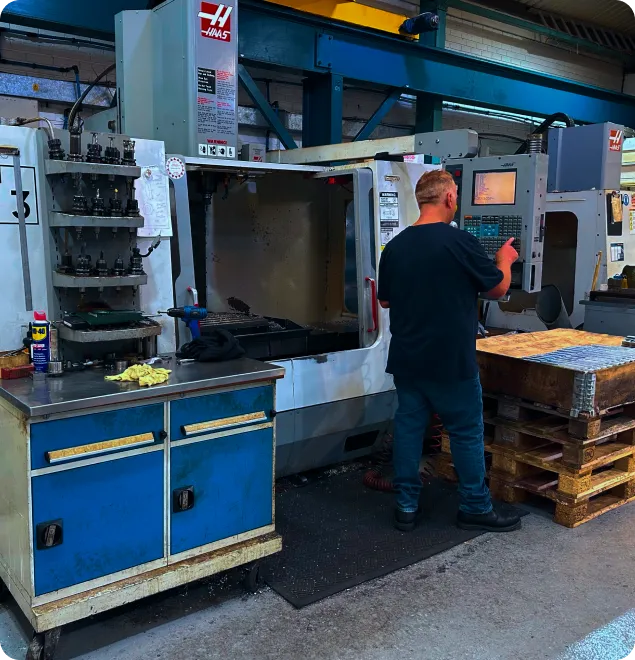
In addition to understanding the operation, the beauty of CNC lies in its versatility. CNC machines come in various forms and serve multiple purposes across industries—ranging from automotive to aerospace and many more.
Such adaptability enables the use of CNC in diverse applications, making it possible for manufacturers to scale their productivity, improve their quality, and extend their capabilities to produce intricate designs otherwise too complex for manual execution.Moreover, there are vital advantages to CNC machining beyond just productivity.
The precision and reliability of CNC machines enable production runs with minimal error margins, thereby reducing waste and enhancing consistency. This characteristic ensures manufactured components meet high standards consistently across batches, significantly beneficial for businesses focusing on mass production without sacrificing quality.
As industries continue to evolve, innovations in CNC technology ensure these systems remain at the forefront of manufacturing advancements. With ongoing developments in CNC programming and the capability enhancements of CNC machines, manufacturers are continually pushed to explore more complex designs and streamline their operations for even better efficiency. Understanding the basics of CNC not only empowers current stakeholders but also invites new talent to explore careers in CNC machining and become crucial contributors to this innovative field.
CNC Precision Engineering (CPE) encourages anyone interested to delve into the world of CNC to take that step forward. The intricacies of CNC systems are rich with learning opportunities and pave the way to exciting innovations in engineering and manufacturing. With CNC, the future of manufacturing is not just automated—it's smart, efficient, and, most importantly, incredibly _accessible_ to those willing to learn and innovate.
In addition to understanding the operation, the beauty of CNC lies in its versatility. CNC machines come in various forms and serve multiple purposes across industries—ranging from automotive to aerospace and many more. Such adaptability enables the use of CNC in diverse applications, making it possible for manufacturers to scale their productivity, improve their quality, and extend their capabilities to produce intricate designs otherwise too complex for manual execution.Moreover, there are vital advantages to CNC machining beyond just productivity.
The precision and reliability of CNC machines enable production runs with minimal error margins, thereby reducing waste and enhancing consistency. This characteristic ensures manufactured components meet high standards consistently across batches, significantly beneficial for businesses focusing on mass production without sacrificing quality.As industries continue to evolve, innovations in CNC technology ensure these systems remain at the forefront of manufacturing advancements. With ongoing developments in CNC programming and the capability enhancements of CNC machines, manufacturers are continually pushed to explore more complex designs and streamline their operations for even better efficiency.
Understanding the basics of CNC not only empowers current stakeholders but also invites new talent to explore careers in CNC machining and become crucial contributors to this innovative field.CNC Precision Engineering (CPE) encourages anyone interested to delve into the world of CNC to take that step forward. The intricacies of CNC systems are rich with learning opportunities and pave the way to exciting innovations in engineering and manufacturing. With CNC, the future of manufacturing is not just automated—it's smart, efficient, and, most importantly, incredibly _accessible_ to those willing to learn and innovate.
Metal fabrication, automotive parts, aerospace components, and mold making
CNC milling machines are used for milling tasks in the industry. They can perform a wide range of activities, such as drilling, tapping, and turning.
CNC Router
CNC Milling Machine
Used to cut various hard materials such as wood, composites, aluminium, steel, plastics, and foams.
Woodworking, sign making, cabinetry, and door carving
CNC Lathe
Used primarily for turning operations. They can create precise cylindrical parts by rotating the workpiece against fixed cutting tools.
Creating shafts, bushings, threaded components, and decorative woodaccents
CNC Plasma Cutter
Utilises a high-powered plasma torch to cut through electrically conductive materials like metals.
Sheet metal cutting, metal sign creation, and HVAC ductwork fabrication
CNC Laser Cutter
Employs a high-power laser beam to cut and engrave materials with extreme precision.
Engraving, sheet metal profiling, jewelry design, and prototyping
CNC Electric Discharge Machine (EDM)
Uses electrical discharges or sparks to shape metal by eroding material. Ideal for hard materials and intricate shapes.
Tool and die making, mold fabrication, and aerospace component manufacturing
CNC Water Jet Cutter
Uses high-pressure jets of water, often mixed with abrasives, to cut a variety of materials without heat deformation.
Stone and tile cutting, automotive parts, and sculpture shaping
5-Axis CNC Machine
Enables movement along five different axes, which allows for complex and intricate parts to be manufactured without reconfiguring the setup.
Complex 3D shapes, aerospace components, and high-precisiontools
3D Printer
Fabricates three-dimensional objects by layering materials, usually plastic or metal, based on digital 3D models.
Prototyping, custom parts, medical implants, and art sculptures
CNC Grinding Machine
CNC grinding machines remove vast amounts of material using an abrasive wheel to create precise parts and audio finishing surfaces.
Surface finishing, precision machining of tools, and gear grinding
Accuracy
CNC machines offer high precision and repeatability, ensuring consistent quality of manufactured parts.
Efficiency
CNC machines can operate continuously 24/7, significantly reducing the production time for manufacturing tasks.
Automation
These machines reduce the need for manual intervention, minimising human error and increasing safety in the workplace.
Flexibility
CNC machines can be quickly reprogrammed to produce different parts, allowing for adaptable production processes.
Cost-effectiveness
Despite initial investment costs, CNC machines lead to reduced labor costs and material wastage over time.
Complexity
Capable of producing complex geometries that would be difficult or impossible to achieve with manual machining.
Scalability
Efficiently handles both small and large-scale production runs without compromising quality.
Material Versatility
CNC machines can work with a wide range of materials, including metals, plastics, woods, and composites.
Consistency
Ensures each produced piece will conform exactly to the specified design, maintaining uniformity across production batches.
Reduced Waste
Optimised cutting paths and precise control help minimise material waste during the manufacturing process.
Training and Adaptability
Operators can be trained relatively quickly, and the machine's adaptability allows for easy updates and upgrades.
Data Integration
Modern CNC machines can integrate with CAD/CAM software, simplifying the design and programming process.
Quality Control
The precision of CNC machining allows for stringent quality control and adherence to tight tolerances.
Reduced Lead Times
Faster setup and production times result in reduced lead times from order to delivery.
Enhanced Safety
The automation reduces the direct involvement of operators, lowering the risk of injury during machining operations.
Energy Efficiency
Optimised use of power and reduced material waste contribute to energy-efficient manufacturing processes.
In addition to understanding the operation, the beauty of CNC lies in its versatility. CNC machines come in various forms and serve multiple purposes across industries—ranging from automotive to aerospace and many more. Such adaptability enables the use of CNC in diverse applications, making it possible for manufacturers to scale their productivity, improve their quality, and extend their capabilities to produce intricate designs otherwise too complex for manual execution.Moreover, there are vital advantages to CNC machining beyond just productivity.
The precision and reliability of CNC machines enable production runs with minimal error margins, thereby reducing waste and enhancing consistency. This characteristic ensures manufactured components meet high standards consistently across batches, significantly beneficial for businesses focusing on mass production without sacrificing quality.
As industries continue to evolve, innovations in CNC technology ensure these systems remain at the forefront of manufacturing advancements. With ongoing developments in CNC programming and the capability enhancements of CNC machines, manufacturers are continually pushed to explore more complex designs and streamline their operations for even better efficiency.
Understanding the basics of CNC not only empowers current stakeholders but also invites new talent to explore careers in CNC machining and become crucial contributors to this innovative field.CNC Precision Engineering (CPE) encourages anyone interested to delve into the world of CNC to take that step forward.
The intricacies of CNC systems are rich with learning opportunities and pave the way to exciting innovations in engineering and manufacturing. With CNC, the future of manufacturing is not just automated—it's smart, efficient, and, most importantly, incredibly _accessible_ to those willing to learn and innovate.
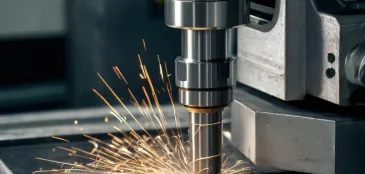
In addition to understanding the operation, the beauty of CNC lies in its versatility. CNC machines come in various forms and serve multiple purposes across industries—ranging from automotive to aerospace and many more. Such adaptability enables the use of CNC in diverse applications, making it possible for manufacturers to scale their productivity, improve their quality, and extend their capabilities to produce intricate designs otherwise too complex for manual execution. Moreover, there are vital advantages to CNC machining beyond just productivity.
The precision and reliability of CNC machines enable production runs with minimal error margins, thereby reducing waste and enhancing consistency. This characteristic ensures manufactured components meet high standards consistently across batches, significantly beneficial for businesses focusing on mass production without sacrificing quality. As industries continue to evolve, innovations in CNC technology ensure these systems remain at the forefront of manufacturing advancements.
With ongoing developments in CNC programming and the capability enhancements of CNC machines, manufacturers are continually pushed to explore more complex designs and streamline their operations for even better efficiency. Understanding the basics of CNC not only empowers current stakeholders but also invites new talent to explore careers in CNC machining and become crucial contributors to this innovative field.
CNC Precision Engineering (CPE) encourages anyone interested to delve into the world of CNC to take that step forward. The intricacies of CNC systems are rich with learning opportunities and pave the way to exciting innovations in engineering and manufacturing. With CNC, the future of manufacturing is not just automated—it's smart, efficient, and, most importantly, incredibly _accessible_ to those willing to learn and innovate.
Metals
Plastics
Wood
Foams
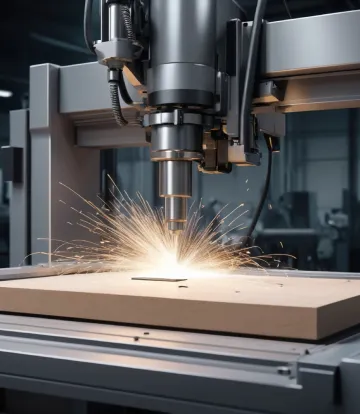
In today's rapidly evolving industrial landscape, CNC automation plays a pivotal role in transforming how manufacturers like CNC Precision Engineering (CPE) design, produce, and deliver products. The integration of CNC systems into production processes has enabled businesses to leverage precision, efficiency, and scalability like never before.
As a cornerstone of modern manufacturing, CNC machines offer numerous advantages such as increased productivity, reduced error margins, and improved operational efficiency. From small-scale projects to complex, large-volume manufacturing solutions, CNC automation is indispensable for companies striving to stay competitive and meet consumer demands.
One significant advantage of using CNC systems is their ability to streamline production processes through the use of automation. By reducing the need for manual intervention, companies can focus on more strategic tasks while maintaining high levels of precision and consistency. Furthermore, CNC robotics enhance the capabilities of automation by executing repetitious tasks with unmatched accuracy and speed.
This reduces the physical burden on workers, minimising fatigue and the risk of human error, which translates to higher-quality outcomes and greater workplace safety. At CPE, we understand that the dynamic nature of modern industries demands flexibility and adaptability. Our cutting-edge CNC machines are designed to cope with increasingly complex manufacturing requirements, allowing industries to pivot quickly and efficiently.
CNC automation offers not only increased output but also the versatility needed to accommodate varied designs and modifications. The precision of CNC ensures that even intricate details are faithfully realised, making it an essential tool in sectors where quality can't be compromised. Moreover, CNC solutions provide a significant boost to productivity. They allow for continuous operation, leading to higher output levels without sacrificing quality.
This is particularly important in large-scale manufacturing environments where time is of the essence and deadlines are a key factor in maintaining client relationships. By adopting CNC automation, industries can shorten production cycles, maximise resource utilisation, and ultimately gain a competitive edge in the marketplace.Our commitment at CPE extends beyond the provision of machinery; we offer comprehensive CNC service support to ensure smooth, uninterrupted production processes for our clients.
Our expert team delivers maintenance, troubleshooting, and optimisation guidance to keep CNC machines running at peak performance. By ensuring that clients experience minimal downtime, we help maintain their operational flow, directly impacting their profitability and growth potential. Incorporating CNC robotics into automation systems is also a notable innovation within the industry.
By combining advanced robotics with CNC technology, manufacturers can achieve unprecedented levels of precision and efficiency. This convergence also opens up new possibilities for creating complex components and assemblies that were once thought too challenging or expensive to produce. In conclusion, the importance of CNC automation in modern industries cannot be overstated.
It acts as a catalyst for innovation, boosting productivity, enhancing quality, and driving the industry forward. As demands continue to mount, businesses armed with advanced CNC solutions are well-positioned to meet future challenges head-on. At CNC Precision Engineering (CPE), we're proud to lead the charge in providing exceptional CNC systems that empower industries to reach their full potential. Embracing CNC automation is key to unlocking new levels of success and maintaining a robust industrial presence in a highly competitive landscape.
Precision CNC machining is used for creating components such as turbine blades, engine parts, and airframe components, requiring high precision and complex geometries.
Component Manufacturing
Automotive
Aerospace
Parts Production
CNC machines produce engine components, gearboxes, and other critical parts that demand accuracy and efficiency in mass production.
Medical
Surgical Instruments
CNC machining creates intricate and precise surgical instruments and implants, adhering to strict safety and medical standards.
Electronics
PCB Fabrication
Used for precise cutting and shaping of printed circuit boards (PCBs) for various electronic devices and components.
Consumer Goods
Product Prototyping
CNC systems are essential in prototyping home appliances, gadgets, and consumer electronics, allowing quick iterations and testing.
Construction
Architectural Models
Utilised to create detailed models and components for construction projects, including complex facades and design elements.
Defense
Weapon Systems
CNC machining is critical for manufacturing firearms, missile components, and other defense-related hardware that require high precision and durability.
Marine
Propeller Manufacturing
CNC machining is critical for manufacturing firearms, missile components, and other defense-related hardware that require high precision and durability.
Furniture
Custom Design
Allows for the creation of customised furniture and intricate designs, providing flexibility in materials and finishing.
Jewelry
Intricate Designs
CNC technology enables cutting and engraving of precious metals to create detailed and precise jewelry pieces.
Textile
Pattern Making
Used for producing cutting patterns and fixtures that improve efficiency and accuracy in garment manufacturing.
Art and Sculpture
Sculpting
Artists utilise CNC machines for sculpting materials such as stone, metal, and wood, enabling complex designs and repetitive accuracy.
Welcome to the exciting world of CNC Precision Engineering (CPE), where we’re continuing to break new ground through innovative applications of CNC technology. At CPE, we firmly believe that the potential of CNC building is boundless, offering a vast array of possibilities that seem to expand every day.
Whether you're exploring CNC creations for the first time or you've mastered the basics, there's always something new to learn and apply. With the advancements in CNC machinery, the landscape of modern manufacturing is evolving swiftly, opening up fresh avenues for creativity and efficiency.In the realm of CNC building, the applications are as diverse as they are revolutionary.
From producing intricate parts for the aerospace industry to crafting customised furniture using CNC MDF processes, the versatility of CNC machines is truly unmatched. The precision and accuracy achieved with CNC machines allow manufacturers to achieve detail that's simply unreachable through manual methods. Whether it's shaping metal components or cutting intricate designs into MDF, the possibilities that CNC machinery offers are truly exciting. Each innovative application of CNC technology serves as a testament to its power and utility in modern-day manufacturing.
The beauty of CNC innovations doesn't just stop at functionality; it’s also about pushing the boundaries of what’s possible. The ability to simulate complex calculations virtually before any physical build means designs can be perfected digitally. This has been a game-changer in CNC building, as it boosts efficiency and reduces waste.
Using CNC machines to streamline production also means we can respond swiftly to changes in demand and maintain high-quality standards across all projects. This commitment to precision and quality is why CNC machines have become indispensable in various industries, paving the way for more groundbreaking creations.
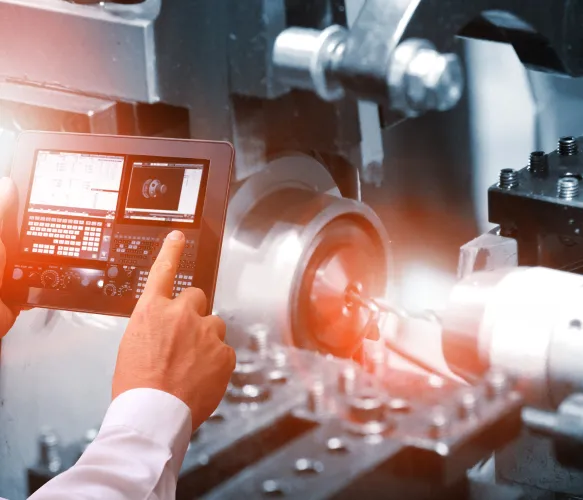
Innovation in CNC building is often driven by a combination of technological advancement and creative application. Industries are constantly finding novel ways to incorporate CNC technology into their production lines. For instance, the art world is embracing CNC innovations to create pieces that weren't feasible before. The blend of art and technology is generating CNC creations that captivate and inspire, showing that creativity knows no bounds. Similarly, in architecture, CNC machines are playing a pivotal role in developing complex structures that are as aesthetically pleasing as they are structurally sound.Perhaps what’s most exciting about CNC building is the community of passionate innovators continually pushing the envelope.
From hobbyists to seasoned professionals, the enthusiasm for CNC innovations remains strong. This shared passion drives competition and collaboration, resulting in even more groundbreaking developments in CNC creations. At CPE, we are thrilled to be part of such a dynamic field and are committed to staying on the cutting edge of CNC machinery advancements. We're not just using CNC technology; we're shaping its future.Looking ahead, the integration of advanced software with CNC machines promises even greater possibilities for customisation and automation.
As we continue to harness the full potential of CNC technology, CPE remains dedicated to supporting our clients through every challenge, ensuring they’re equipped with the tools needed for success. Our goal is to continue exploring and expanding the applications of CNC, making sure each build is more efficient and innovative than the last. Rest assured, whatever your CNC project entails, CNC Precision Engineering is here to help you bring your vision to life. Together, we'll continue to redefine what’s possible in CNC building through innovation, precision, and unwavering dedication.
Regular Cleaning
Keep the CNC machine clean by removing dust, debris, and residue after each use to prevent build-up that could affect performance.
Lubrication
Regularly lubricate all moving parts according to the manufacturer's recommendations to reduce friction and wear.
Check Alignment
Regularly inspect and adjust the machine's alignment to ensure accuracy and precision in machining operations.
Inspect Tool Holders
Frequently inspect tool holders and tighten as necessary to prevent tool slippage and loss of machining accuracy.
Monitor Software Updates
Keep the CNC machine's software updated to benefit from the latest features, improve functionality, and fix any bugs.
Electrical Connections
Periodically inspect and secure all electrical connections to prevent loose cables, which can cause machine malfunctions.
Coolant Levels
Monitor and maintain appropriate coolant levels and quality to ensure efficient cooling and extend tool life.
Spindle Maintenance
Regularly check the spindle for any unusual noises or vibrations and ensure it is balanced for optimal performance.
Calibration
Perform routine calibration of the CNC machine to maintain precision and accurate output measurements.
Backup Data
Regularly back up CNC programmes and machine data to prevent loss in case of hardware failures or other issues.
Training
Ensure operators are well-trained on the specific CNC machine models to maximise their performance and longevity.
Monitor Machine Environment
Maintain a proper environment for the CNC machine, controlling temperature and humidity to prevent damage.
Document Maintenance Activities
Keep detailed records of maintenance activities for future reference and tracking of machine condition over time.
In the ever-evolving world of manufacturing, CNC creations stand as a beacon of innovation and efficiency. At CNC Precision Engineering (CPE), we understand the transformative power of CNC machines to streamline operations and boost productivity. Our commitment to advanced techniques allows us to bring cutting-edge solutions to the forefront of the industry, ensuring that every design is crafted with unparalleled precision and quality. But how do these CNC machines actually enhance productivity on the shop floor?
To answer this question, we first need to delve into the heart of what makes CNC creations so revolutionary. At their core, these systems are designed to execute complex cuts and movements with the utmost accuracy, reducing the likelihood of human error. This level of precision not only ensures a high-quality finish of the product but also significantly lowers waste. With our advanced techniques, CPE is able to optimise each process to improve the efficiency of production lines. Moreover, the automation inherent in CNC systems allows for round-the-clock operation, which significantly boosts production capacity. Gone are the days when operations needed to halt for shifts; CNC machines can work tirelessly, thereby enhancing productivity and reducing lead times. Of course, to fully capitalise on these benefits, proper training in CNC operation is crucial.
At CPE, we prioritise comprehensive training programmes that equip our team and clients with the know-how to operate CNC systems effectively, maximising their potential for increased output and performance. Innovation doesn’t stop at operational efficiency, though. CPE's dedication to advancements in CNC techniques includes implementing smart sensors and AI applications to further refine the process of design and cutting. These cutting-edge transformational technologies enhance the CNC systems, allowing for feedback loops that continuously adjust and improve part accuracy in real-time.
By integrating such advancements, CPE not only improves the immediacy and reliability of production but also enables the meticulous customisation of components, opening new vistas in product development.
Our passion for CNC creations goes beyond simply enhancing productivity. We believe that by employing advanced techniques, we're paving the way for environmental sustainability. Reduced material waste means reduced ecological impact, a goal that's increasingly crucial in modern manufacturing. Furthermore, CPE's focus on efficient machining means less energy consumption, echoing our commitment to advancing not just industry standards but also environmental responsibility.In embracing this innovative ethos, CNC Precision Engineering is constantly exploring the cutting-edge of what is possible with CNC machines. From detailed designs that require an artist's touch to heavy industrial applications, our advanced systems are tailored to meet a diverse array of manufacturing needs. This flexibility is crucial in an industry where change is the only constant. At CPE, we're driven to refine and redefine what CNC creations mean today and for the future. Because when it comes to pioneering productivity and precision, we believe there's always more ground to cover.
As we push the boundaries of what's achievable with CNC technology, we're excited to invite our partners and clients on a journey of continuous improvement and discovery. Together, with the right training and tools, we can achieve new heights in manufacturing excellence. Let CNC Precision Engineering be your guide in navigating these exciting developments, ensuring your operations remain at the cutting edge of the industry.
At CNC Precision Engineering (CPE), we believe in harnessing the power of innovation with CNC technology. Our commitment to precision and quality ensures that our CNC machine advancements drive efficiency and productivity across industries. Whether you're looking to enhance manufacturing capabilities or streamline production processes, our pioneering solutions will empower your business to excel. Embrace the future with CNC Precision Engineering, where evolving technology meets exceptional craftsmanship. Join us on this exciting journey, and together, let's shape a more innovative and precise tomorrow!